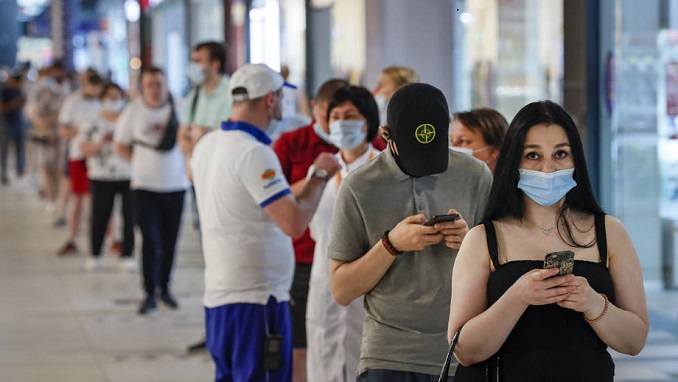President Vladimir Putin stated during a meeting with members of the Russian administration that the period from October 30 to November 7 would be non-working days due to the epidemic. He further said that, if required, this action may be expanded or implemented as early as October 23 in some areas. Experts informed Izvestia that non-working days in all areas are unlikely to be extended beyond November 7.
Even in less than a week, the country would incur economic losses of approximately 60 billion rubles ($845.9 million). The Russian economy will lose an average of 4 billion rubles ($56.4 million) each day, according to First Deputy Prime Minister Andrey Belousov.
The government suggested two business-support measures. First, a one-time payment of one minimum wage per employee to businesses in the impacted industries, which would cost about 27 billion rubles ($380.6 million). Second, it was suggested to continue providing assistance to businesses with the condition that the bulk of the workforce be maintained.
These assistance measures will suffice if the duration of non-working days is not prolonged, according to Alexander Shirov, Director of the Institute of Economic Forecasting of the Russian Academy of Sciences. Otherwise, support may need to be increased.
The non-working days may have a far larger impact amid problems with the population’s high debt levels and mortgage loans, perhaps triggering a new crisis, according to Alexey Kuchmin, a member of the General Council of Business Russia.












